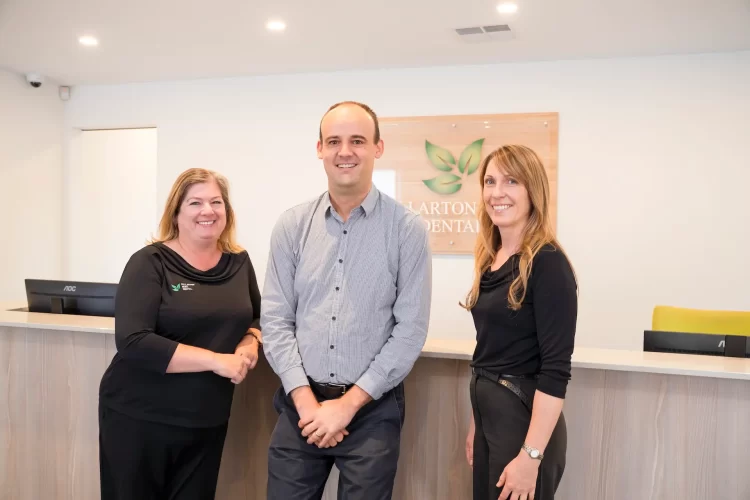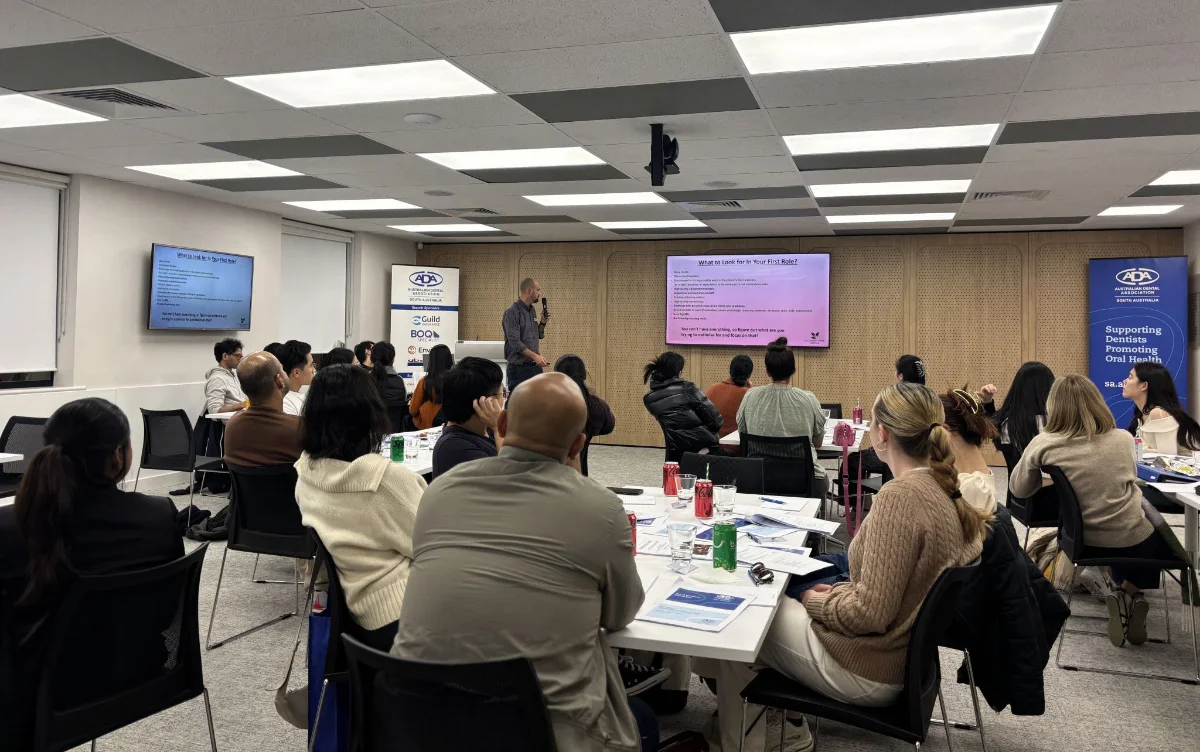Becoming a Dentist
So, how do you become a dentist in Australia? It starts with university, typically a four to five year degree. This is also true for oral health therapists and dental hygienists, with several pathways available including direct entry, TAFE, or related fields. It’s a long but rewarding journey. You’ll need strong grades, pass interviews and tests, and commit to years of study. But once you’re in, you’re on the path to a challenging and fulfilling career!
From Student to Dentist – How to make the leap?
- The time for pretending is over! Reality is just around the corner.
- Maintain your full scope! Commit to learning and having a degree of competency with molar endo, exos, dentures, etc.
- Develop strong relationships – You need advocates/people who support you within the dental team.
- Do you own push-ups. Commit to never ending improvement.
- Stay off socials.
- Be open to the thing you think you don’t like in dentistry being the thing that you most love!
- Get your flying hours up! – You want to be busy, see lots of patients, get loads of experience.
- Going to your employer with solution as well as problem will vastly increase the chances of it being fixed!
- Consider working in the country – Much broader base of exposure to interesting and complex treatment, you will likely upskill much quicker than your peers who stay in major cities.
- Be Coachable.
- Find a great first job!!!
Becoming Coachable
Being coachable is a crucial skill, especially in a field like dentistry where learning never truly stops.
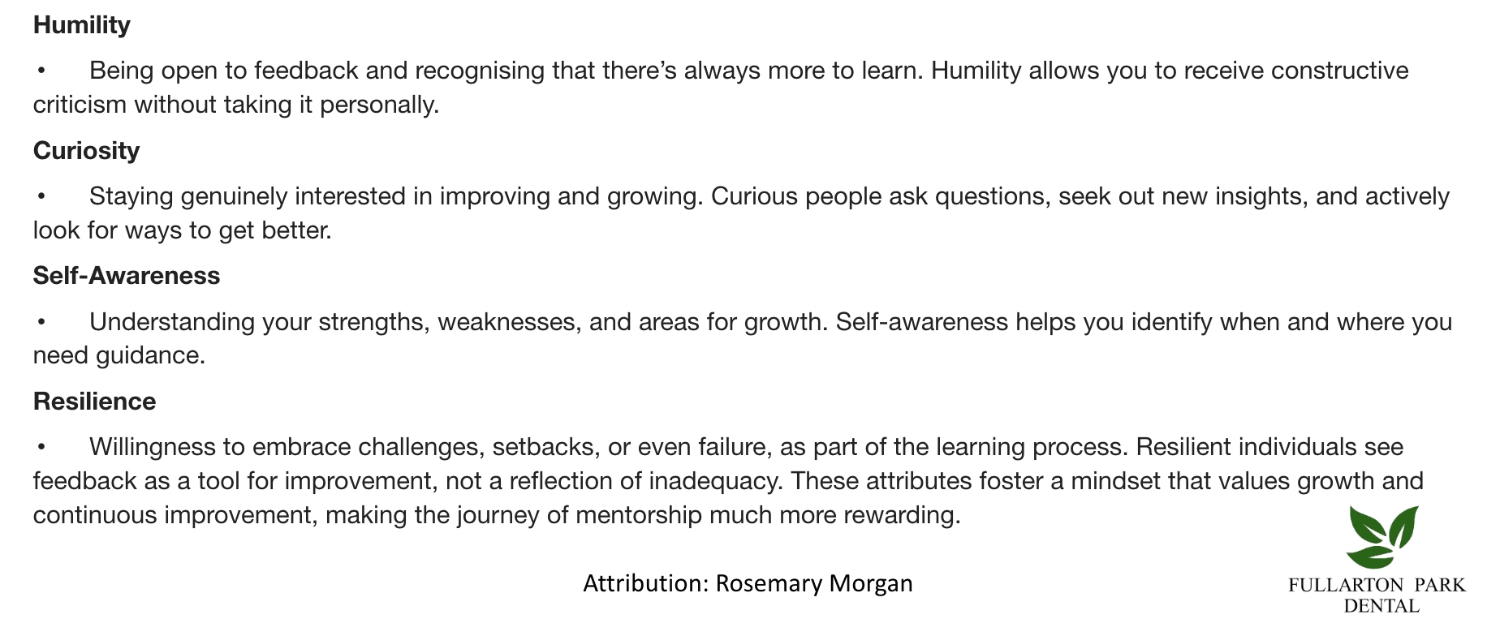
How to Approach Your First 1-2 Years of Dentistry Post-Graduation
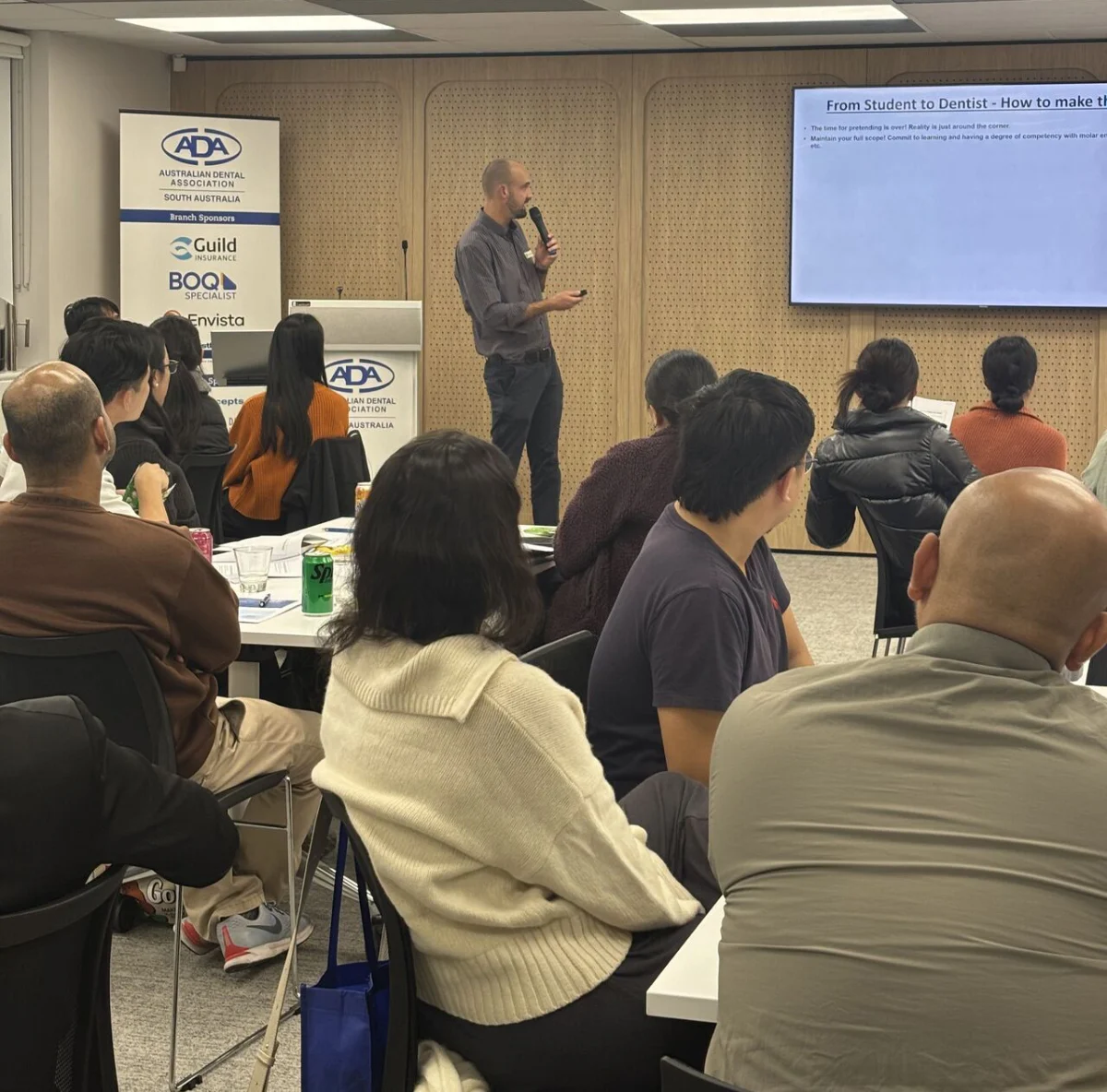
- The first two years of working in general practice post-graduation are a steep learning curve as you flesh out your skills and learn how to practice clinical dentistry in a private dental practice rather than at university.
- You will learn more about dentistry in your first six months in practice than you did in your five years of university study.
- The best way to approach your first 1-2 years post graduation is to consolidate the core skills of dentistry that will underpin all aspects of your future clinical care, as well as improving your patient communication which will serve you incredibly well once you learn how to effectively do so.
- Be open to learning and highly receptive to feedback from mentors and others.
- Your practicing career should be a long and enjoyable one, with plenty of times to explore niche clinical areas of interest. For the first couple of years you are best off fine-tuning your core skills rather than going too far down any particular clinical rabbit holes or attempting to learn how to do more complex procedures such as full mouth rehabilitation, orthodontics or implant placement. There will be plenty of time for learning these skills – if you so desire – in time, but initially you will be best served by becoming highly proficient and skilled at the core competencies of “everyday dentistry” before you consider more complex disciplines of dentistry.
- If you run into difficulty with a case (ie. a difficult extraction) it is best to seek assistance before both you and the patient are exhausted! At this stage often the patient has had enough and just wants to be done with it or go home, which doesn’t make it easy for the senior dentist to assist in the case or resolving the issue. If a case is a difficult one, check with the senior dentist to ensure they are happy for you to attempt it, and then if you run into trouble attempt to get yourself out of it, but don’t persist beyond what is reasonable and seek further assistance rather than toil without making any progress.
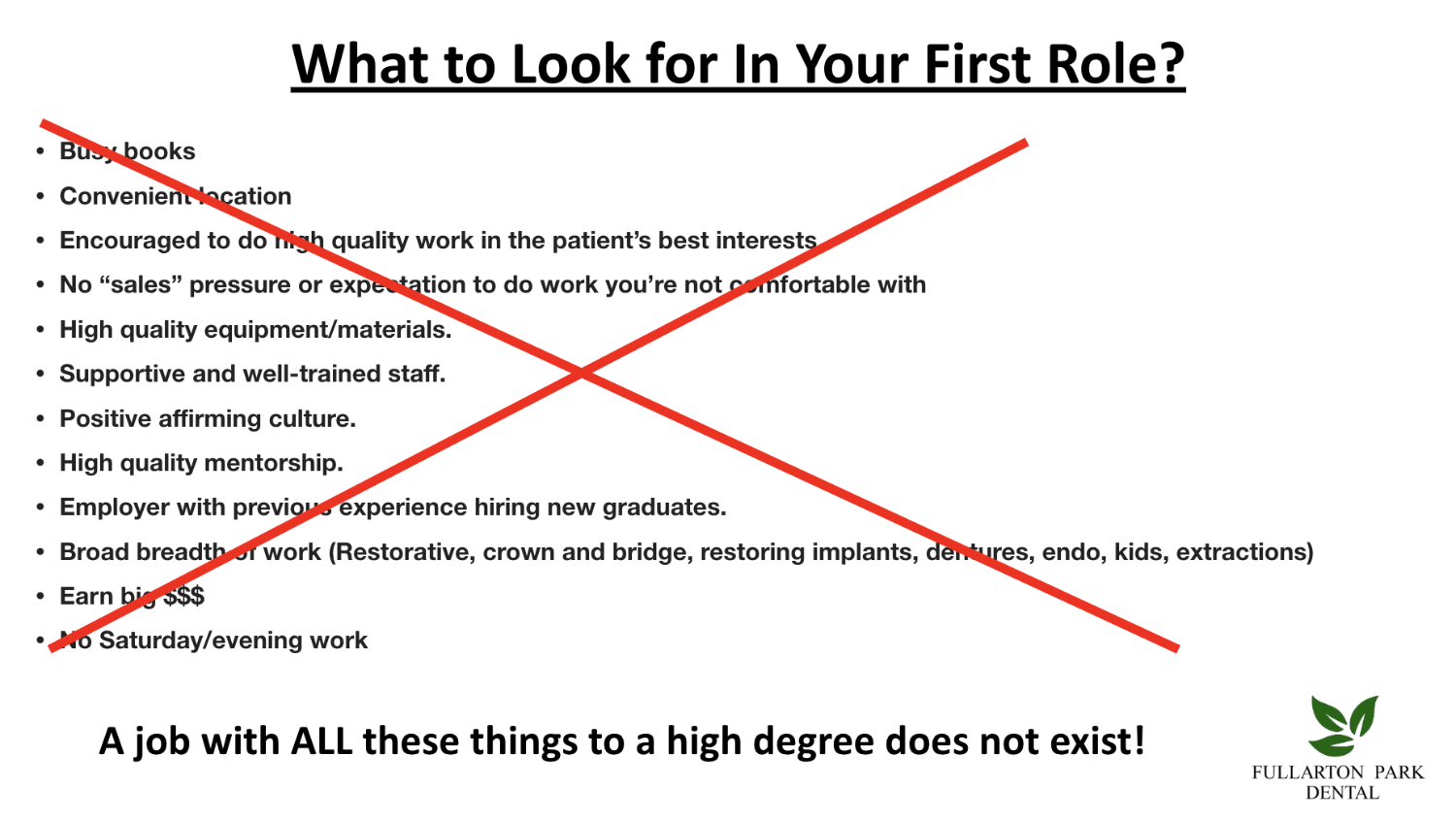
You can’t have everything, so figure out what are you trying to optimise for and focus on that!
Questions to ask potential employers?
- What are your expectations on me in terms of billing in my first year?
- Are there performance KPIs around my billings?
- Can I see the appointment books? (Check how busy they are and you will likely be!)
- What type of mentoring do you offer?
- Will mentoring only be provided when something goes “wrong”, or will there be time set aside separately to run through cases and answer questions I have?
- Do you have experience with employing new or recent graduates?
- Can I speak to any previous or current dentists who have worked here?
- Can I come in and shadow you/another dentist for a few hours or half a day to see how the practice runs?
- Will I be able to do the work I diagnose or will some work get taken out of my appointment book (ie. Crowns?)
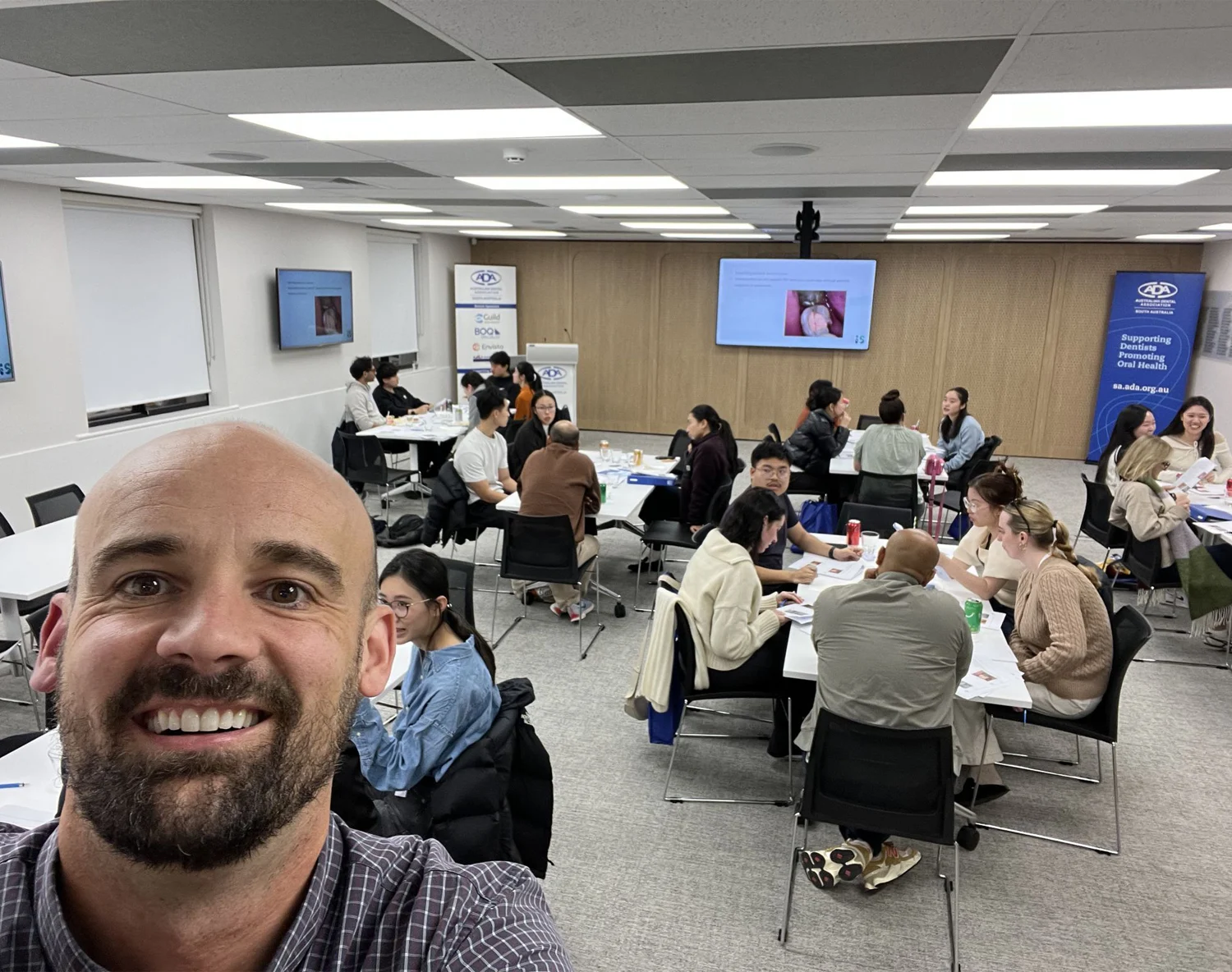
Ready to launch a career in dentistry?
If you’re a new grad or an early career dentist looking for the right environment to grow, Fullarton Park Dental might be the place for you. We’re committed to mentoring, ongoing development and giving you the support you need to thrive.
👉 Explore Careers at Fullarton Park Dental

